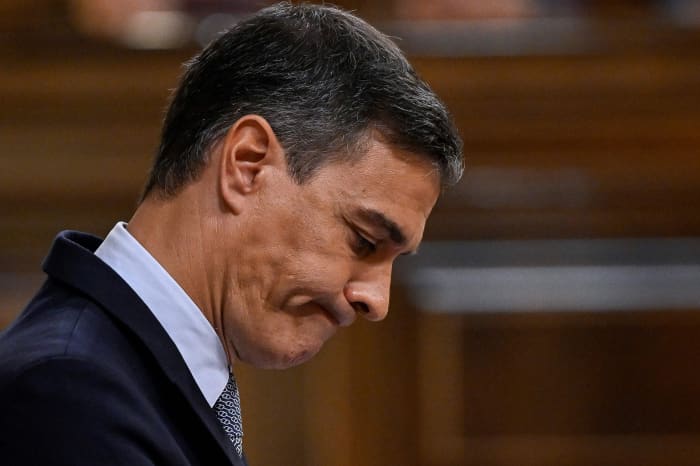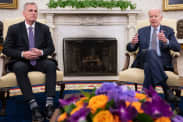Spanish Prime Minister Pedro Sanchez announced Monday that he would bring forward general elections in the country to July 23, from December, following a poor result for his Social Party at local and regional voting.
“As president and secretary-general of PSOE, I assume responsibility for the results and believe it’s necessary to respond and submit our democratic mandate to the popular will,” Sanchez said in a brief televised statement.
The opposition right-wing Popular Party, or PP, won 31.5% of votes compared with 28.2% for the ruling Spanish Socialist Workers’ Party, or PSOE. The PP achieved a majority in Madrid, and grabbed several regions from the Socialists, notably Valencia and Seville, according to media reports.
“The PP obtained around 750,000 more votes than the PSOE in the local elections, and it was the most-voted party in seven of the 12 Autonomous Communities (i.e., regions) where elections were held. The center-right party is positioned to govern a majority of Spain’s 17 regions and will head the municipal governments of seven of Spain’s 10 most populous cities,” Antonio Barroso, deputy director of research at Teneo, told clients in a note.
Spain’s IBEX 35 stock market
IBEX,
While the PSOE “only” lost around 400,000 votes versus 2019 local elections, the left wing’s poor overall performance means “it will lose a considerable amount of regional and local power.
“It remains to be seen whether a potential coalition between Sumar and Podemos might help them regain momentum. Still, the poor result of the far-left parties does not bode well for the ability of the left-wing bloc to stay in power on the national level,” said Borroso.
One sticky issue for the PP remains the potential deals it may need to make with the far-right Vox party in Aragon, the Balaeric Islands, Cantabria and Extremadura and Murcia to govern.
“The challenge for the center-right party is that Vox will likely try to gain as much influence as possible in those places where its support is crucial for the PP to govern. Therefore, the main signpost to watch in the coming weeks is the negotiations between the two parties,” said Borroso.
“More specifically, if the PP and Vox end up forming coalition governments in several regions, the key question is whether Vox’s attempts at shaping policy decisions in PP-led regional executives might have any effect on polling trends ahead of the legislative elections,” he said.







